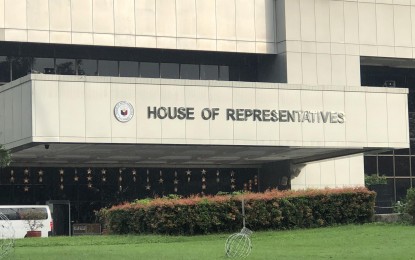
MANILA – The chairman of the House Ways and Means Committee on Monday asked concerned government agencies to recommend the "transitional" Strategic Investments Priorities Plan (SIPP) to the Fiscal Incentives Review Board to maximize the open investment policy the country is adopting.
During an online meeting, committee chair Joey Salceda directed the executives from the Department of Agriculture, the Department of Science and Technology, and other agencies to recommend the transitional SIPP to prevent investor uncertainty and allow those in the Investment Priorities Plan (IPP) 2020 to upgrade their tax incentives for the more generous packages under Corporate Recovery and Tax Incentives for Enterprises (CREATE).
“The transitional SIPP is the bridge to a more carefully-crafted comprehensive SIPP. Right now, without this bridge, we are stuck only with the IPP 2020, which does not yet have a mechanism for the higher-tech tiers under CREATE," Salceda said.
The CREATE law provides longer tax incentives for sectors that are considered “higher-value” or “higher-tech", he said.
“The transitional SIPP will also be a subset of the larger, more comprehensive SIPP, which I expect will have resolved issues being cited by the BOI, such as industry classification,” he added.
He explained that the framework is “that the IPP 2020 is the interim SIPP, there will be a transitional SIPP, until finally we arrive at a comprehensive SIPP.”
Salceda said the five fundamental bases of the transitional SIPP are: allowing sectors under IPP 2020 to upgrade from Tier 1 incentives under CREATE; optimizing the Public Service Act amendments and other investment liberalization laws; the Pagtanaw 2050 and Science For Change agenda of the DOST; Food Security through the Farm and Fisheries Clustering and Consolidation (F2C2) and OneDA program of the DA; and regional transformation and relocation from NCR.”
“These bases are really our roadmap for industrial policy and transformation under CREATE,” Salceda said.
He said the delay in the release of the SIPP is due to disagreements between the agencies on the system of classification to be used for determining whether businesses fall under the categories of industries qualified for incentives.
He said this is a disagreement that’s not worth delaying the SIPP for a year over.
“The Secretary of Finance, I believe, is also of the attitude and opinion that we should already have the SIPP resolved as soon as possible, hence his directive to complete the list last month,” he said.
He noted that the transitional SIPP is the main instrument for the immediate full-blown implementation of CREATE even while waiting for a comprehensive SIPP.
Under the CREATE law, export-oriented activities may qualify for up to 17 years of incentives for exporters, with 4-7 years of income tax holiday (ITH) and 10 years of special corporate income tax (SCIT). The SCIT is a 5 percent tax on gross income.
Meanwhile, domestic-market enterprises under the SIPP may qualify for up to 12 years of incentives, with four to seven years of ITH and five years of SCIT for enterprises with investment capital not less than PHP500 million, and five years of enhanced deductions otherwise.
Extra tax incentives of two years of ITH are available for locators in areas recovering from disaster, and three years of ITH for those relocating from NCR.
Salceda said the transitional SIPP will be presented to the FIRB once it meets this month. (PNA)
